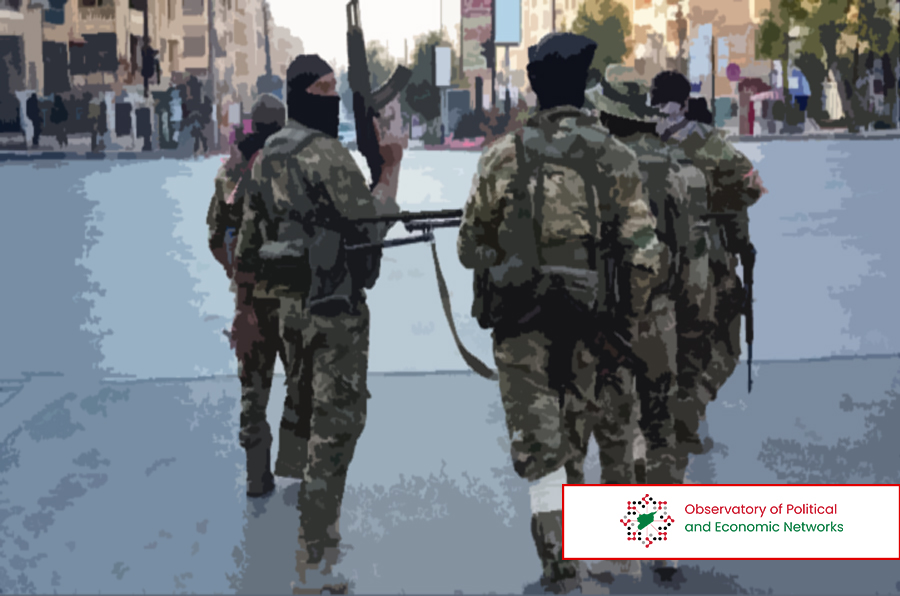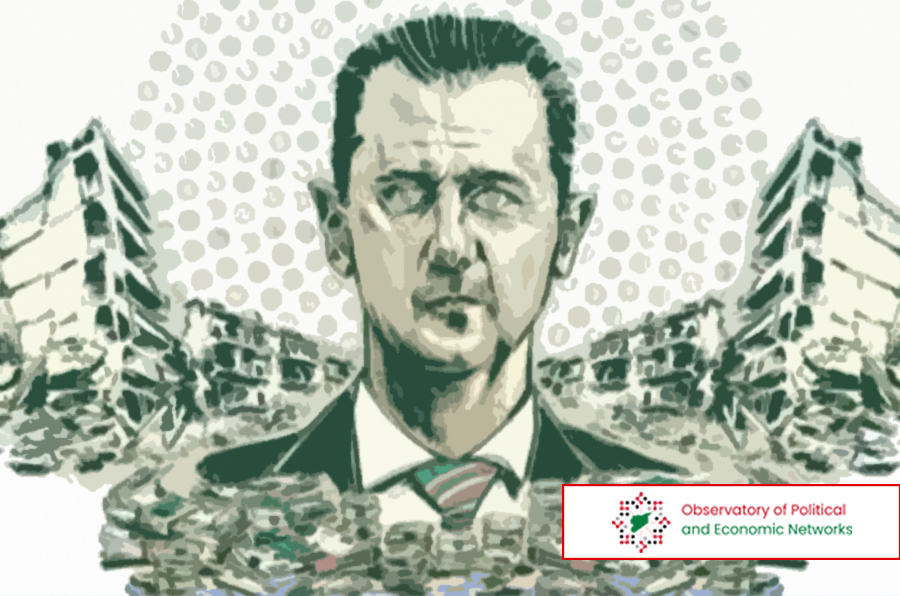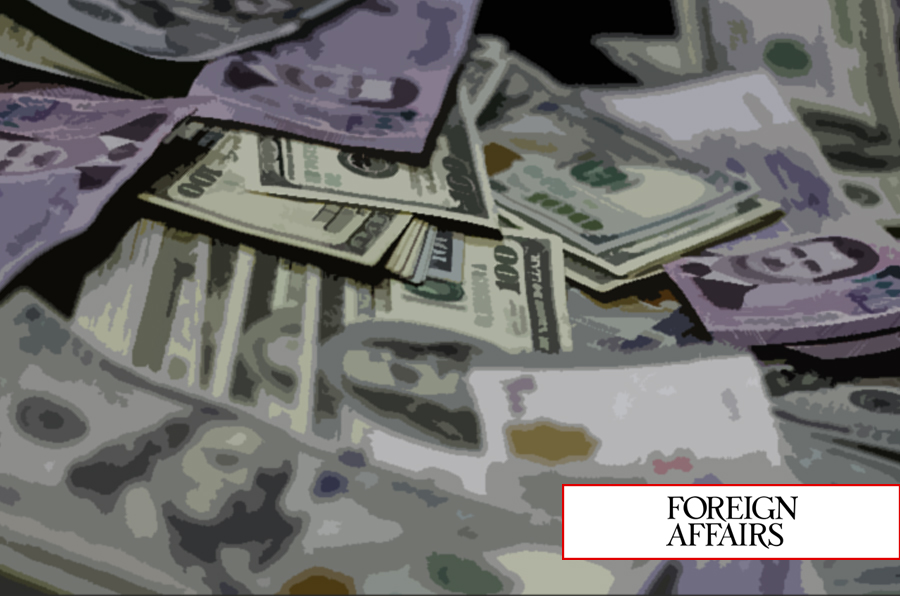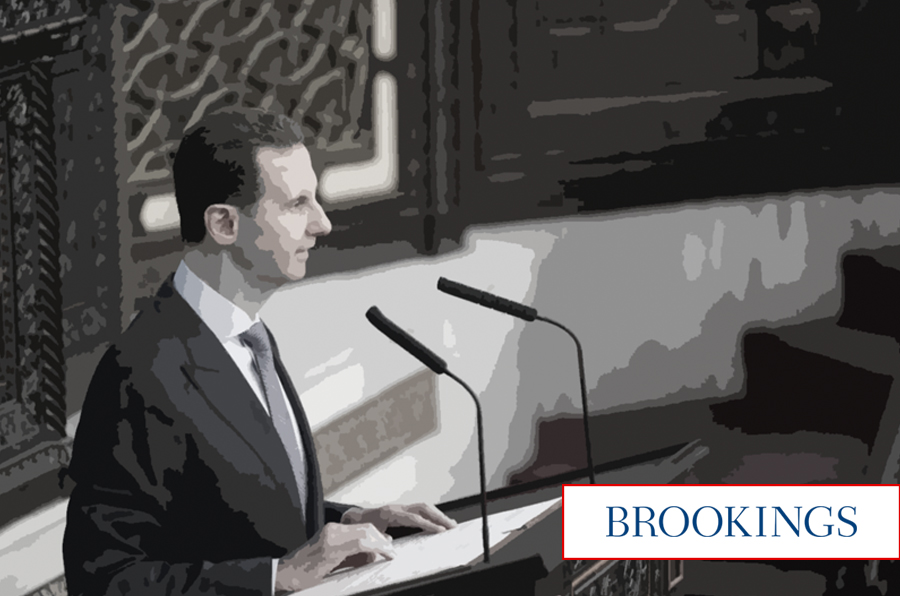Publications
Here we share all our published work, including peer-reviewed academic papers, policy papers, and op-eds.
The report examines how Assad’s regime weaponized captagon in 2024 to seek regional normalization, reducing supply while preserving industrial-scale production. Despite record seizures, pill volumes declined, suggesting strategic throttling. The regime avoided major lab busts, distanced itself from key traffickers, and halted large maritime smuggling. After Assad’s ouster, Syria’s caretaker government exposed regime-linked facilities and renounced the trade. The report warns of regional spillover, including rising methamphetamine production in Iraq, Kuwait, and Türkiye. It calls for US-led multilateral coordination, Mediterranean-Gulf intelligence sharing, and technical support for Syria’s new authorities in chemical profiling and harm reduction.
Observatory of Political and Economic Networks, Karam Shaar and Vittorio Maresca di Serracapriola (Feb 21, 2025)
Karam Shaar and Vittorio Maresca di Serracapriola analyze how the US terrorist designations and delisting mechanisms interact with UN sanctions. The US has sanctioned Ahmad al-Sharaa, Syria’s Interim President and de facto leader, solely under the Specially Designated Global Terrorist (SDGT) designation. Meanwhile, his group Hay’at Tahrir al-Sham (HTS) holds both an SDGT designation and a Foreign Terrorist Organization (FTO) label. The report examines the comparative stringency of these designations, showing how each imposes severe legal and financial restrictions. It also highlights the interaction between UN and US delistings, noting that unlike listings—mandated by the UN Security Council through Chapter VII resolutions—delistings do not carry the same binding requirement.
Observatory of Political and Economic Networks, Karam Shaar and Benjamin Feve (Jan 10, 2025)
Karam Shaar and Benjamin Feve analyze General License 24 (GL24), issued on 6 January 2025, as a U.S. Treasury measure to address Syria’s post-Assad needs. GL24 facilitates targeted transactions for energy provision, personal remittances, and governance, aiming to alleviate humanitarian crises and stabilize essential services. The report highlights successes such as doubling Syria’s electricity capacity and enabling a significant salary increase for public employees. However, it notes key limitations, including the absence of provisions for reconstruction, compliance challenges, and the short six-month duration, which discourages long-term initiatives. The authors emphasize the need for recalibrated sanctions to balance urgent humanitarian needs with sustainable recovery efforts.
Foreign Affairs, Karam Shaar and Benjamin Fève (Dec 20, 2024)
Karam Shaar and Benjamin Fève explore the profound economic collapse confronting Syria’s new leadership in the wake of the regime’s abrupt fall on 8 December. With Hay’at Tahrir al-Sham overseeing the transitional period, the authors contend that avoiding further instability will require a combination of comprehensive reforms and carefully sequenced international support. They detail the widespread devastation of Syria’s economy and infrastructure, the fragmentation of its governance and currencies, and the displacement crisis within and outside the country. They advocate for the immediate easing of sanctions on critical sectors such as energy and banking, while maintaining that broader relief relating to terrorism should be contingent upon meaningful political reform. The authors emphasize the urgent need to unify Syria’s fractured economic systems, revive private-sector activity, and reintegrate the country into the global economy—warning that inaction could entrench the humanitarian crisis and fuel ongoing regional instability.
Brookings Institution (Policy Brief), Karam Shaar and Steven Heydemann (Aug 26, 2024)
This policy brief explores how President Bashar al-Assad is restructuring Syria’s economic networks to ensure his access to resources despite the economic collapse faced by the rest of the country. By centralizing control over critical sectors through new economic fronts, Assad is positioning himself as a major economic actor, further entrenching his power while the humanitarian crisis faced by ordinary Syrians worsens. Our analysis sheds light on the inner workings of these networks, offering insights for policymakers aiming to forge a political settlement to the ongoing conflict. Understanding these networks is essential for devising effective strategies to counter the regime’s resilience in the face of international pressure.





